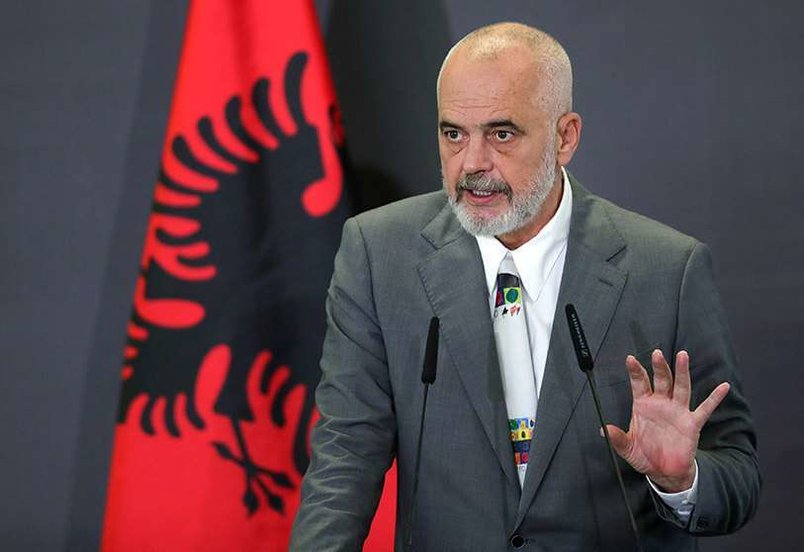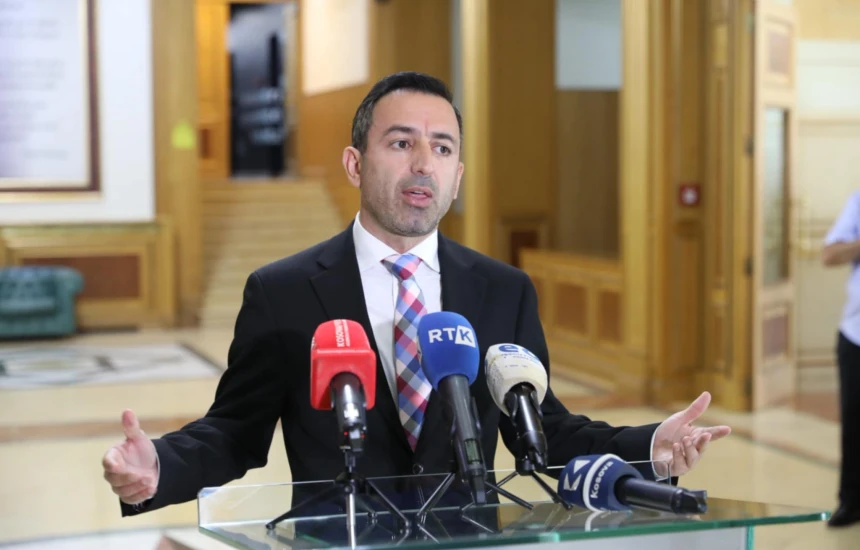Kosovo’s parliament on Tuesday elected ruling party lawmaker Dimal Basha as speaker, breaking a six-month political stalemate that had left the post vacant and blocked the full functioning of the legislature.
Basha, a member of Prime Minister Albin Kurti’s Vetevendosje (Self-Determination) party, won 73 votes in the 120-seat chamber, with 30 lawmakers voting against and three abstaining. His candidacy was supported not only by Vetevendosje but also by opposition deputies from the Democratic Party of Kosovo (PDK) and several from the Alliance for the Future of Kosovo (AAK).
It was the second time Basha’s name was put forward, and the fifth nomination by Vetevendosje since the gridlock began. The proposal came from Arbërie Nagavci, the acting education minister, and was backed in a secret ballot.
PDK leader Memli Krasniqi said before the vote that his party did not consider Basha the most suitable candidate but agreed to support him to end the parliamentary deadlock. “If Vetevendosje really thinks Dimal Basha is the best they have to represent the people, we will vote for him, even though we don’t believe that’s the case,” he said.
The election immediately triggered criticism from the Democratic League of Kosovo (LDK). Its leader, Lumir Abdixhiku, called PDK and AAK’s decision to back Basha a “grave mistake,” warning that Kosovo risked entering a new constitutional crisis. He said the Constitutional Court could be asked to review procedures, particularly regarding the election of the assembly’s deputy speakers.
One of those votes has already caused controversy. Nenad Rashiq, a Serb deputy nominated for deputy speaker, failed to win the required 61 votes, securing only 55 in favour, one against and 17 abstentions. Speaker Basha said the law required a minimum of 61 votes for a representative of the Serb community to be elected. The vote was adjourned until Thursday to allow further consultations.
Meanwhile, parliament elected three other deputy speakers from Kosovo’s Albanian-majority parties — Albulena Haxhiu of Vetevendosje, Vlora Çitaku of PDK and Kujtim Shala of LDK — with 101 votes in favour. Deputies also approved a rotation system for representatives of smaller non-Serb minorities, naming Emilja Rexhepi, Fidan Gjilta and Artan Asllani to serve in turn.
The session was briefly suspended after non-Serb minority deputies insisted that the vote on Rashiq be separated from other candidates, prompting accusations of procedural violations. Parliamentary experts told Gazeta Express that all minority candidates were meant to be voted as a package.
The wrangling over the leadership reflects the fragility of Kosovo’s political scene more than 16 years after its declaration of independence from Serbia. Kurti’s Vetevendosje has struggled to secure broader support in parliament, while Serb deputies remain aligned with Belgrade and frequently abstain or block appointments.
Kosovo’s new speaker faces the immediate task of ensuring parliamentary functionality while navigating disputes over minority representation — an issue closely watched by the European Union and the United States as mediators of Kosovo’s troubled dialogue with Serbia.



